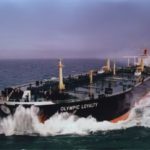Legal wrangle over detention of vessels by Indonesia

A long-standing dispute between Singapore and Indonesia concerning which country holds territorial rights over which parts of the Singapore Strait is causing problems for shipowners.
In February, approximately 20 vessels were detained by the Indonesian Navy around Bintan Island, in the eastern part of the Singapore Strait. The waters around that island are a familiar place of anchor for vessels waiting to dock in nearby Singapore. However, Bintan is part of Indonesia’s Riau Archipelago, and therefore the Indonesian Navy claims the authority to detain and investigate vessels suspected of breaching Indonesia law, such as anchoring without prior approval from the relevant authorities.
All of the vessels detained had allegedly anchored in the area illegally, as they had no port clearance to sail in Indonesian waters and had violated relevant traffic-lanes procedures as they positioned themselves for anchoring. However, it is not clear that the masters of the vessels or their owners understood that they were anchored in Indonesian waters. Indeed, the status of those waters is a matter of debate in the international community.
Indonesia and Singapore have actually signed a treaty relating to the delimitation of the territorial seas of the two countries in the eastern Singapore Strait. Unfortunately, the treaty did not resolve their dispute over several waters, particularly around Bintan Island and Pedra Branca, which were declared by the International Court of Justice (ICJ) as within Singapore’s territorial waters in 2008. That dispute is still under negotiation between the two countries, which is even more complicated because tucked in between Bintan Island and Pedra Branca is Middle Rock, which was determined by the ICJ to be owned by Malaysia.
Consequently, the Indonesia Navy is within its rights to claim that the vessels anchoring in the waters around Bintan Island without prior approval are in violation of the applicable Indonesian laws. Thus mere claims of ignorance of the de facto status of those waters is no excuse. The navy was only doing its duty to investigate every vessel suspected of illegal anchoring.
Subsequently, all of the detained vessels were shifted to Batam Naval Base for further investigation, having allegedly violated several sections of the Indonesian Shipping Law.
Article 219 paragraph (1) of the Shipping Law states that every vessel sailing in Indonesian waters must be in possession of a Port Clearance issued by the relevant harbormaster. If the Port Clearance is not obtained, Article 323 paragraph (1) of the Shipping Law states that the master of the vessel will be penalized with imprisonment for a maximum of five years and a fine of a maximum of 600 million rupiah, or approximately US$42,000.
Additionally, the detained vessels also allegedly violated Article 193 paragraph (1) of the Shipping Law, which in essence states that during the voyage, the master must comply with the traffic procedures, shipping lanes, route systems, ship traffic area, and navigation infrastructures. Failure to do so can result in a year in prison and a maximum fine of 200 million rupiah.
According to the official website of the Tanjung Pinang District Court in Riau Islands province, where the detained vessels were being adjudicated, the master of MT Afra Oak, a Liberian-flagged oil tanker, filed a pretrial motion against the Indonesian Navy on March 14. In essence, the motion questioned the authority of the navy to detain the ship. Nevertheless, on April 2, the presiding judge refused the pretrial motion.
In connection with the authority of the Indonesian Navy to detain the vessels, Article 9 of Law No 34 of 2004 regarding the Indonesian Armed Forces clearly states that the navy has the authority to uphold the law relating to the security of Indonesian waters, including but not limited to pursuing, detaining, conducting preliminary and subsequent investigations of suspect vessels. Therefore, the authority of the Indonesian Navy is valid and recognized by Indonesian law.
However, at this stage there is no information or published court decision to determine whether the vessels have been released. Likewise, there is no information publicly available on any punishment handed down to the masters of the vessels involved in this case. Practically speaking, getting a vessel released will be plenty difficult and time-consuming, as the owners will need to follow all of the procedures of the court.
This situation therefore sends a message to the governments of Indonesia and Singapore to expedite the negotiation process. A clear delimitation of the territorial waters between the two countries will be helpful for the shipping industry, particularly to the shipowners. It is also an alert for the shipowners to be more aware of the problems they could encounter in certain territorial waters because of prolonged legal issues. Obviously, the detention of these vessels has impaired the business activities of the relevant parties.
It is advisable for the vessels that sail in the Singapore Strait to be careful about where they anchor and make sure they coordinate with all relevant authorities. Furthermore, to avoid risk of detention, the vessels might avoid anchoring around the Eastern Outside Port Limits (EOPL) of Singapore unless their vessels have obtained approval from the Indonesian authorities.
Source: Asia Times

 Hellenic Shipping News Worldwide Hellenic Shipping News Worldwide, Online Daily Newspaper on Hellenic and International Shipping
Hellenic Shipping News Worldwide Hellenic Shipping News Worldwide, Online Daily Newspaper on Hellenic and International Shipping






















 PG-Software
PG-Software